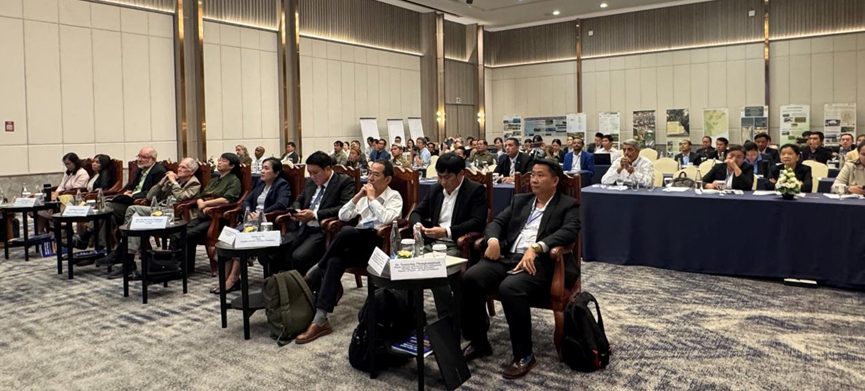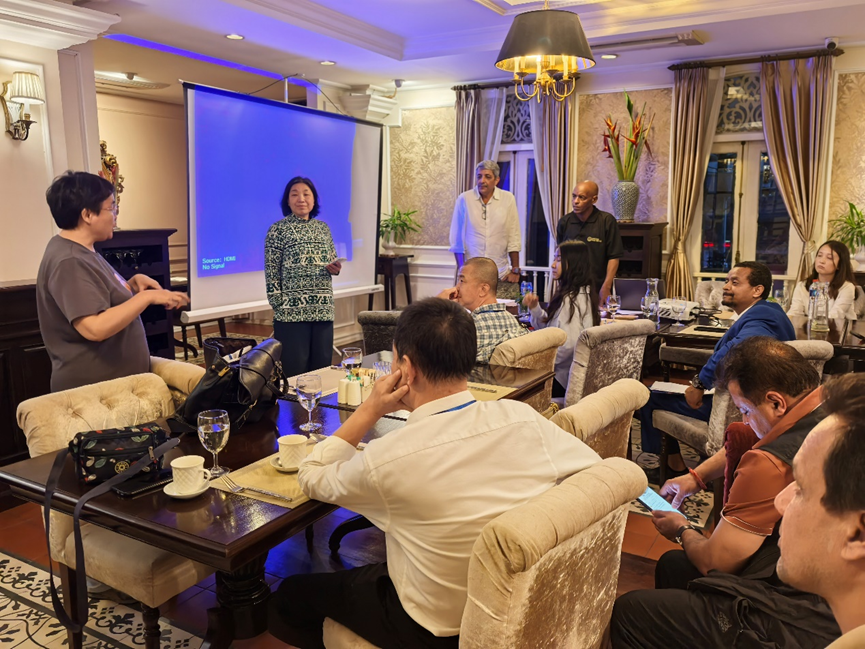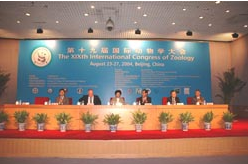The 2025 IAPA/ISZS Annual Meeting —— Promoting and Monitoring Ecotourism in Protected Areas for Sustainable Development in Belt and Road Regions, a landmark event co-hosted by the National University of Laos (NUOL) and the International Alliance of Protected Areas (IAPA) of the International Society of Zoological Sciences (ISZS), convened in Vientiane, Laos during 16-19 August, 2025. Supported by the Alliance of International Science Organizations (ANSO) and the Changbaishan National Nature Reserve, the conference gathers 70+ participants in person from over 20 countries, and 30+ online, including protected area managers, conservation scientists, ecotourism operators, and policymakers, to address the critical balance between biodiversity conservation and sustainable development in Belt and Road regions.

The conference gathers more than 70 participants in person from over 20 countries
The International Alliance of Protection Areas of the International Society of Zoological Sciences (IAPA/ISZS) is an international exchange and collaboration platform composed of protected area management agencies from countries around the world established by the Changbaishan National Nature Reserve and the International Society of Zoological Sciences in 2014. Currently, the network has attracted 166 protected area management organizations from 16 countries. IAPA holds an annual meeting, which has been successfully held ten times so far. This year's annual meeting is the first held outside China, marking a significant milestone in the network's internationalization process and carrying profound meaning.
Aligned with the UN Sustainable Development Goals (SDGs 3, 4, 6, 10, 12, 14, 15), the conference responds to urgent global challenges such as biodiversity loss and climate change by focusing on ecotourism as a tool for sustainable livelihoods and ecosystem protection.
Dr. Daravone Kittiphanh, Vice Minister of Education and Sports, Laos, opened the event alongside Assoc. Prof. Dr. Sinthavone Dalavong, Vice President of the National University of Laos and Prof. Yan Xie (IAPA/ISZS President).
Speakers from Brazil, Croatia, Egypt, Ethiopia, India, Indonesia, Laos, Nepal, Nigeria, Rwanda, Senegal and South Africa shared their case studies of Eco-tourism practices in protected areas of these countries, and present their knowledge on species monitoring and proposed recommendations on improving monitoring in protected areas.
Participants engaged in extensive discussions to develop actionable recommendations and solutions for advancing ecotourism and eco-products in and around protected areas, with a focus on enhancing biodiversity monitoring to improve management effectiveness.
Key outcomes included the discussion and adoption of the "IAPA/ISZS Ecotourism Criteria (Version 1.0)", in-depth deliberations on the development of species monitoring technologies in protected areas, and the formulation and approval of the 2025/2026 work plan. The following initiatives will be launched for long-term implementation:
1. Actively promote the implementation of the "IAPA/ISZS Ecotourism Criteria", highlight IAPA member protected areas and their ecotourism practices that comply with the criteria, encourage travel agencies and enterprises to conduct ecotourism activities in IAPA member protected areas in accordance with the criteria, enhance the management capacity of ecotourism destinations, foster the development of ecotourism in protected areas, mitigate conflicts between conservation and development, and improve the management effectiveness of protected areas.
2. Using the Changbaishan case as a demonstration, promote the establishment of long-term biodiversity monitoring methodologies suitable for protected areas. With simplicity, practicality, and standardization as core objectives, these methodologies will be developed, promoted, disseminated, trained, and implemented across IAPA member protected areas. This will enable the global protected area monitoring system to effectively fulfill its role in monitoring ecological conditions at global, national, and regional levels, supporting global ecological governance, national ecological conservation strategies, and protected area management.
3. Using China as a case study, advance the establishment of a "Protected Area Eco-product Certification System". Through market-based mechanisms, this system will deeply integrate community livelihoods with ecological conservation—by establishing co-management frameworks, guiding communities toward eco-friendly production practices (such as organic farming, sustainable harvesting, and cultural products), and enhancing product value through certification premiums. This will create a virtuous cycle where "conservators benefit". This mechanism not only alleviates conflicts between conservation and development but also incentivizes communities to actively participate in conservation, providing a social foundation for the long-term management of protected areas.

Communication and discussion continued every evening
